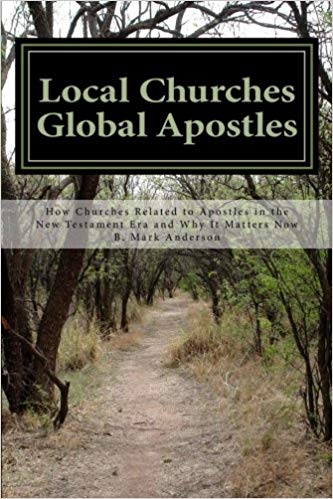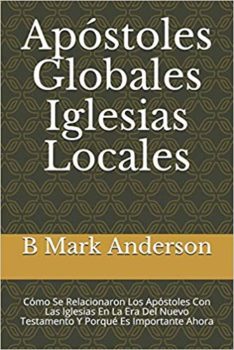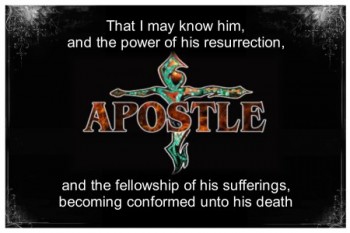
The Necessity of Converting Apostolic Ambitions
There’s a definite slippery slope when it comes to operating apostolically and/or prophetically. Along with any ascension gift comes the ability to influence and persuade people. With the apostolic and prophetic function there comes an inherent governmental nuance that is able to bring unprecedented impact into the life of a believer or community. However, if the potential to persuade is touched by carnal ambitions, it can wreak havoc in the lives of God’s People.
One of the sure signs of such apostolic carnality is that the ability to influence and persuade is used to direct people away from Christ and Christ being formed in them towards a “thing”, a new revelation, a mission, a project, an organization, etc. Essentially, rather than pointing believers to Christ, something is presented to believers as a lens that must be used in order to view Christ. It becomes THE THING and without it, a believer will “miss out” and “get left behind in what God is (really) doing.”
I’m pausing here because thinking about this and writing about this upsets me. I get angry. I get sad from having perpetrated such hijinks on precious believers in the past. It doesn’t matter that I was ignorant of it. I trusted my heart and went with what I thought God was speaking to me “to do”. My heart betrayed me! I was an orphan looking for significance. I had to “build” some thing in order to validate who I thought I was. My heart became broken. Since then, Father has been working at giving me a new one. Would to Father, other apostolic types would take heed and listen to what I am saying.
I am extremely thankful for a brothers/sisters who loved me, suffered with me long enough and were forgiving enough to see some maturity emerge in my life, character and calling. The Body of Christ is a beautiful thing!
In a previous post, A Basic Understanding of Apostolic Being, I offered the following statement:
A true, genuine, authentic, God-called and equipped apostle has to have converted ambition. Ambition is an earnest desire for some type of achievement or distinction. What is it that true apostles earnestly desire to achieve? What is the distinction they hope to obtain? Well, I can tell you that it isn’t to be known as God’s man of faith and power! It isn’t to lead a large congregation or organization. It is not desiring to plant/start churches or even to win the world for Jesus! (gasp!)
Would you like an example of what I am saying? Let’s just stick with apostles being THE THING, shall we?
One of the things which have been established as foundational principles in regards to the apostolic ministry is that apostles operate as wise-masterbuilers and are responsible for devising “apostolic strategies” to get this whole Kingdom thing d-o-n-e!
I REALLY wish apostolic brothers would STOP saying that……….especially about themselves!
I know Paul said it. He said it once.
And, he said it to a group of carnal believers in Corinth, who at the present time, were dominated by their evil nature, spiritually immature and unable to receive Paul’s spiritual teaching because they were not governed by the Holy Spirit. He fed them with milk rather than solid food because they were not able to assimilate the latter. (1 Cor.3:1-2)
He never used the “wise-masterbuilder” metaphor again to the Corinthians or in any other letter written to the churches. Nor, do you read anywhere in scripture where any other apostle does so.
Hmmmmm, I wonder why?
So, he is talking baby talk to infantile, carnal believers so they could potentially understand the point he was trying to make about himself and the other apostles mentioned in the chapter or that they knew. What was he trying to get across to them? Paul and Apollos are NOTHING but God is the Source that causes growth. And, in light of such basic truth, as believers they should stop being divided by choosing which apostolic brand they wanted to associate with in the faith.
But, brothers who want/need for apostles to be THE THING will use that verse as a proof text to establish that apostles are wise-masterbuilders, and, as such, should be honored, supported and heeded.
My question is, “Why aren’t all apostles heralded as laborious gardeners?” I’ve never heard an apostolic message on that one, especially in the Western world.
But before he lays down the wise-masterbuilder metaphor, Paul uses the gardening metaphor to illuminate his point. But, I reckon being identified as a sharecropper isn’t as glamorous to our unconverted ego as is being proclaimed a wise architect.
The truth of the matter is that Paul is referencing laying the foundation of Christ accurately in the life of believers so that they themselves can begin to build upon that foundation. Ultimately, the grace Paul received belonged to God and the People belonged to God. He isn’t talking about using his apostolic grace in building a ministry, organization, network or any of the other stuff our religious, idolatrous, unconverted ambitions can devise.
So, while a crucified-with-Christ Apostle Paul uses the wise-masterbuilder metaphor in context to attempt to remove himself from in between the believer and God and resolve the division found in community, today’s apostles, with unconverted ambition, erroneously embrace the moniker of wise-masterbuilder and prop themselves up before the people.
Converted ambition is what I’m talking about.
Below is an excerpt from T. Austin Sparks’ writing, An Apostle’s Supreme Ambition.
The impressive thing about this expressed ambition is the time at which it is made. Here is a man who has had a revelation and knowledge of Jesus Christ greater than any other man up to that time. That knowledge commenced whence as he said, “it pleased God to reveal his Son in me“. That beginning devastated him, and sent him into the desert to try to grasp its implications. Later he had been “caught up into the third heaven and shown unspeakable things, which (he said) were not lawful to be uttered”. Between, and around those two experiences, there is evidence of an ever growing knowledge of Christ. Here, after all that, near the end of his life, he is crying passionately: “That I may know him.”
The very least that we can say about this is that the Christ in view was a very great Christ indeed, who outstrips the greatest capacity and comprehension of man. This stands in such tremendous contrast to the limited Christ of our recognition and apprehension! How very much more there is in Christ than we have ever seen! But we must break down our verse. It is divided by its main words, and can be stated in its four phrases.
(1) The all-governing passion: “That I may know him.”
(2) The effectual power: “The power of his resurrection.”
(3) The essential basis: “The fellowship of his sufferings.”
(4) The progressive principle: “Conformed to his death.”
You can read the article in its entirety here. If you made it this far, you might want to go check it out. It is definitely worth your time.
When I talk to someone claiming to be an apostle, I use the 4 points provided above to gauge the conversation.
If the majority of the exchange is regarding their latest and greatest (insert something here), then I bless them and go about my way.
If I hear or can sense any mixture of the 4 points in our discourse, I know there is a potential connection to discover and develop. It’s Christ! It is ALWAYS Christ!
Keep your peace!
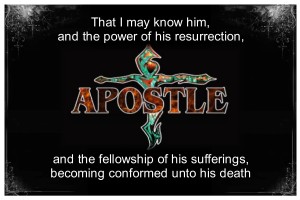
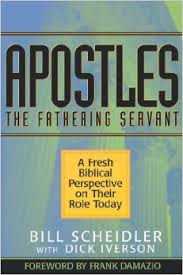
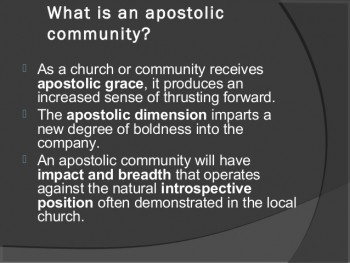








 How can my church get involved?
How can my church get involved?



